Throughout the centuries-long history of Chinese purple clay, there have been 20 masters who established their own unique styles and theories, propelling the development of Chinese purple clay. These masters have also erected monuments to themselves and to Chinese art and culture within the vast river of Chinese purple clay.
Today, we will review these 20 purple clay masters as a tribute to them.
Gong Chun
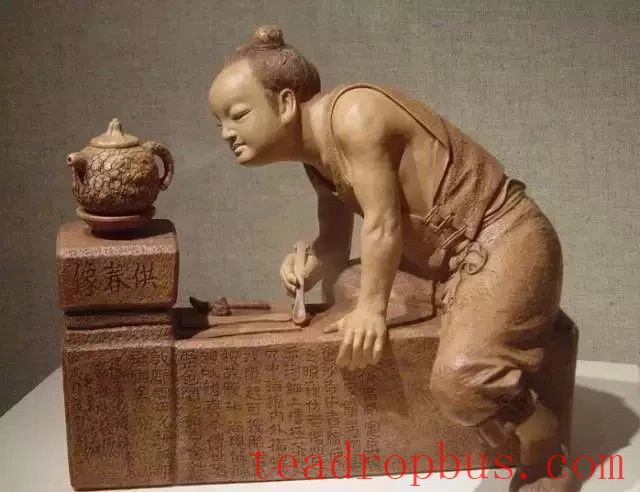
▲ Portrait of Gong Chun
Gong Chun is considered the progenitor of purple clay. Originally a bookish youth, he crafted Teapots that were both exquisite and practical. His name has been passed down through the generations. In the world of purple clay, a Teapot shaped like tree bark is known as a Gong Chun teapot.
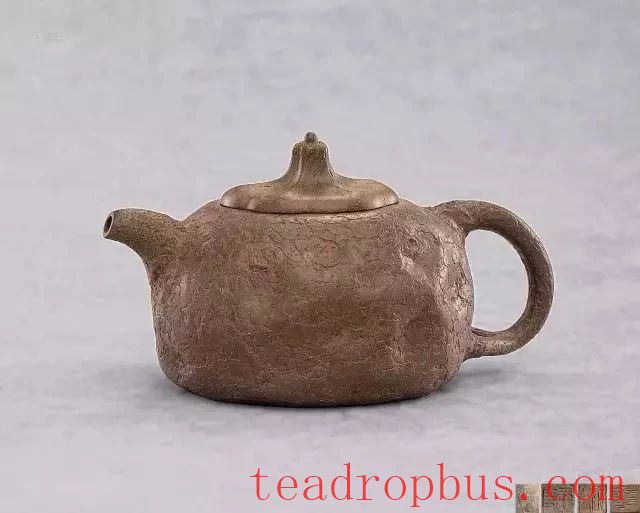
▲ Gong Chun Teapot
Shi Dabin
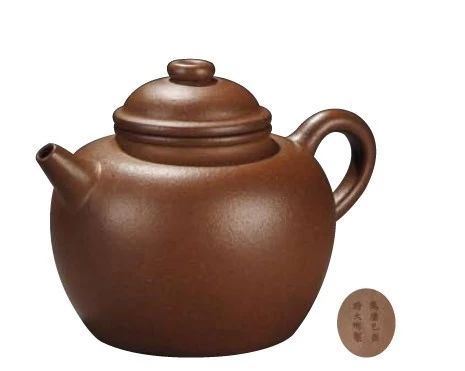
▲ Circle Spout Teapot
Shi Dabin was a Qing dynasty master of purple clay. He improved the techniques for making purple clay and they have been passed down to this day. His creations are admired by later generations. The Circle Spout Teapot he made sold for an astronomical price of 13.4 million yuan at the Xiling Autumn Auction in 2010.
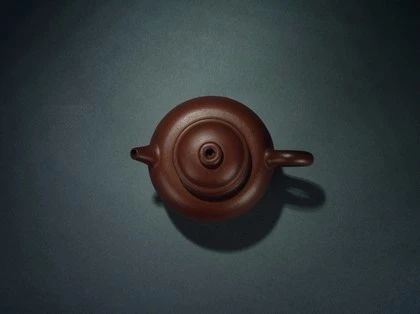
▲ Circle Spout Teapot
Chen Mansheng, Yang Pengnian, and Yang Fengnian
Chen Mansheng is known as the founder of scholar's teapots in later generations. As a calligrapher from the Qing dynasty, he had a passion for purple clay.
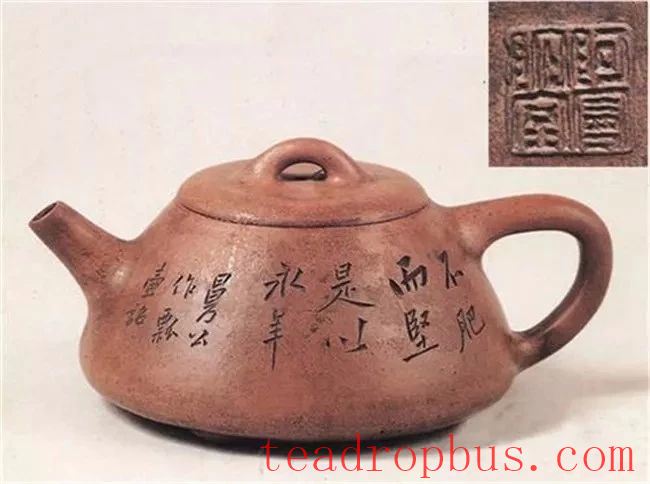
▲ Chen Mansheng's Shibi Teapot
He designed his own purple clay teapots, employing skilled potters such as Yang Pengnian and his sister Yang Fengnian to craft them. He would then inscribe poetic lines on the teapots himself, imbuing them with a scholarly elegance.
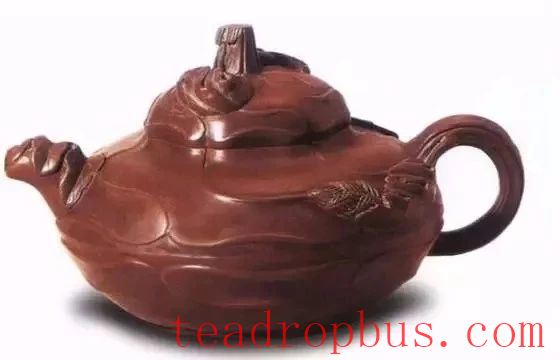
▲ Yang Fengnian's Fengjuan Kuai Teapot
This is how the name “Eighteen Styles of Chen Mansheng” came about in later generations. However, “eighteen” is just a general term; Chen Mansheng's teapots were not limited to only eighteen styles.
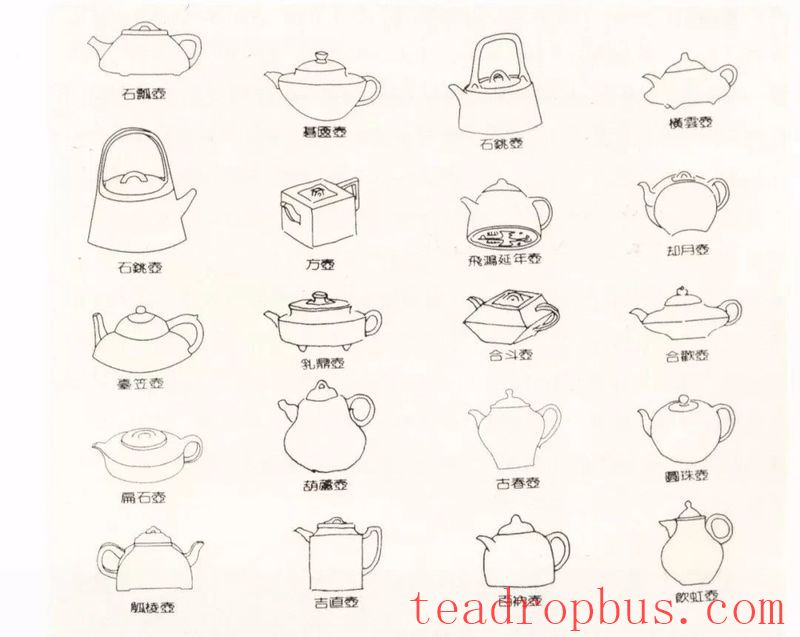
▲ Series of Chen Mansheng Teapots
Qu Ziyi
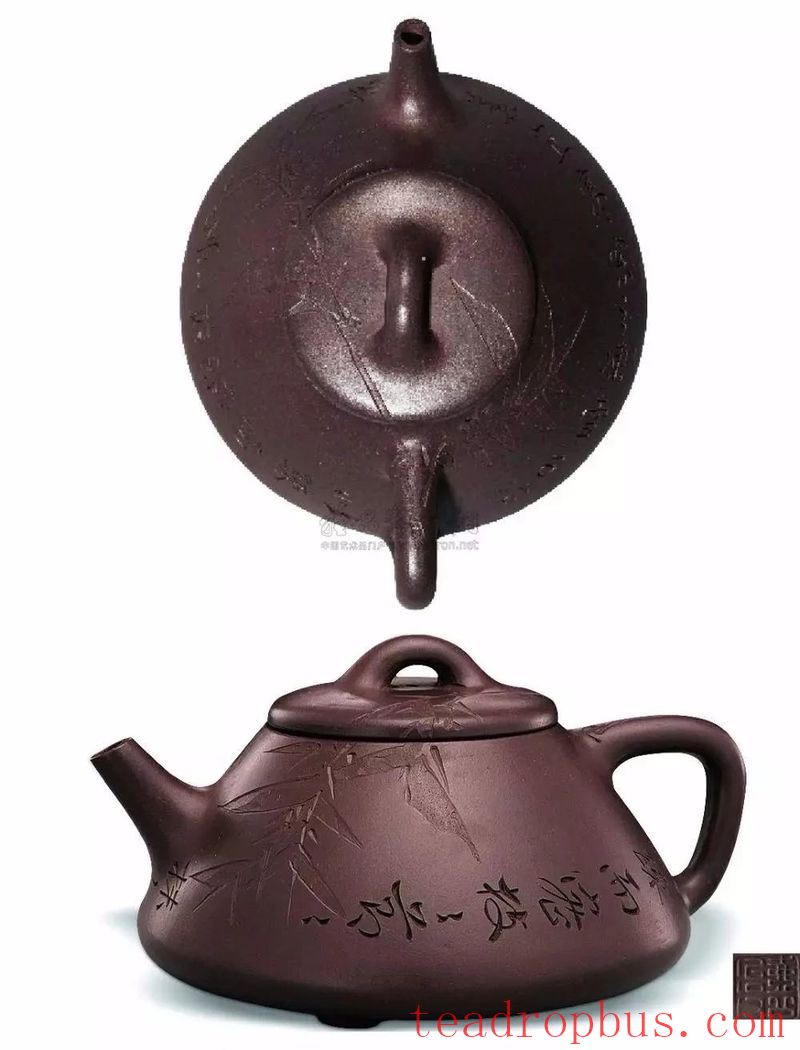
▲ Qu Ziyi's Shibi Teapot
Qu Ziyi was a painter and calligrapher from the Qing dynasty. He loved purple clay and called himself “Teapot Master.” He was skilled at engraving bamboo and poetry, and a style of teapot called “Qu Ziyi's Shibi” has been named after him in the world of purple clay.
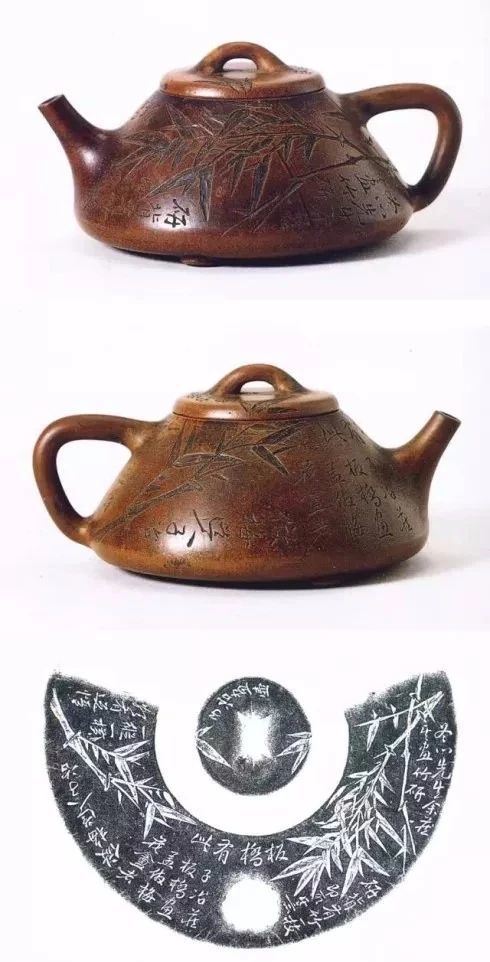
▲ Qu Ziyi's Shibi Teapot
Chen Mingyuan
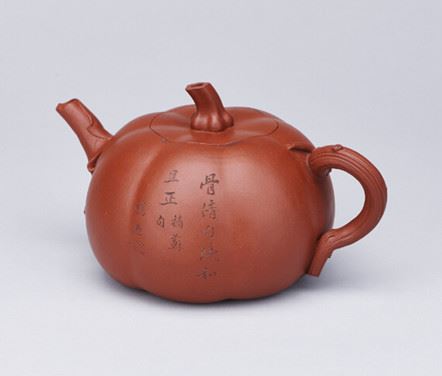
▲ Hezheng Melon Teapot
Chen Mingyuan is considered another great master of purple clay after Shi Dabin. He excelled in every type of teapot, from light to floral and miscellaneous items. He was a true all-rounder in the world of purple clay. His works are highly regarded by later generations, including the Hezheng Melon Teapot and Chuanxiang Teapot, both of which have fetched millions.
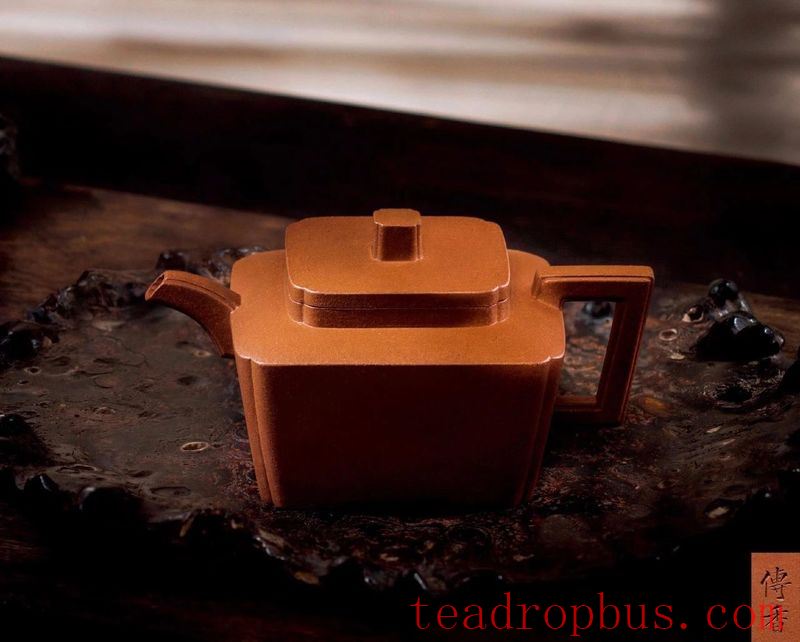
▲ Chuanxiang Teapot
Shao Daheng
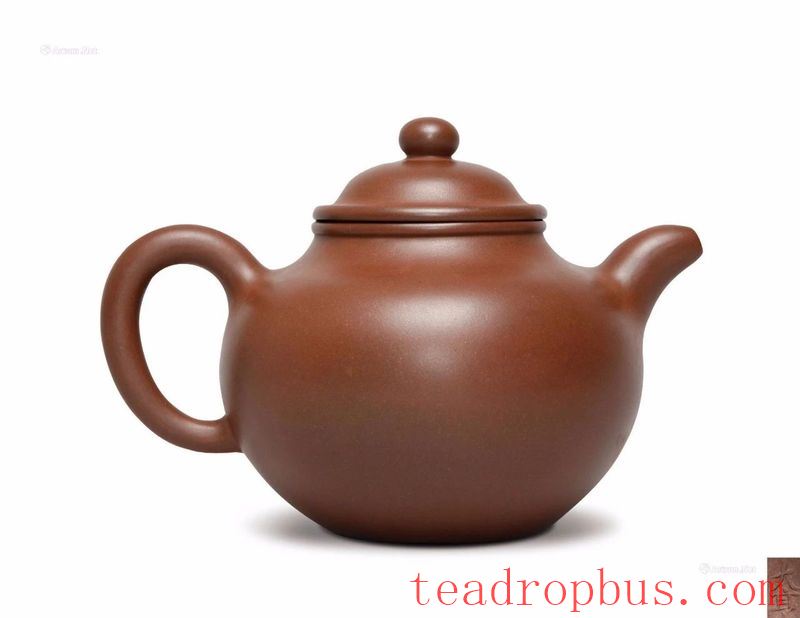
▲ Daheng Duqiu Teapot
The purple clay teapots made after Chen Mingyuan were influenced by imperial court designs, often being intricate and ornate. Shao Daheng swept away this opulence, returning purple clay to its original beauty. He is widely recognized as a master of purple clay. His works are simple yet elegant, especially the Duqiu and Dezhong styles.
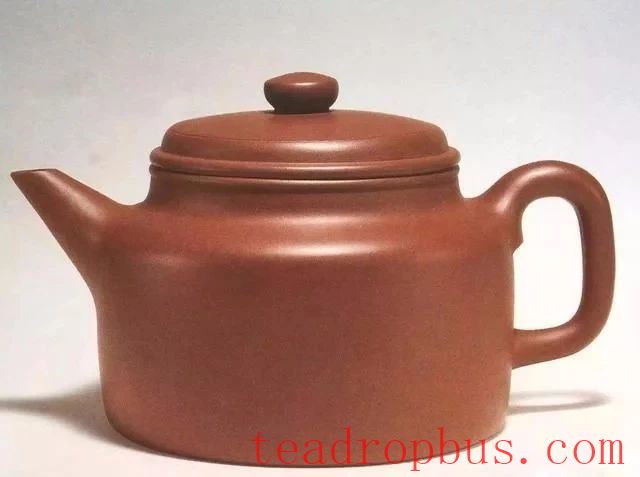
▲ Daheng Dezhong Teapot
Mei Diaoding, He Xinzhou
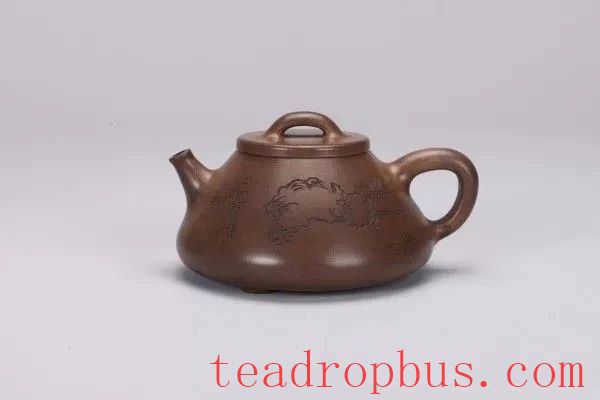
▲ Xinzhou Shibi Teapot
After Chen Mansheng, the Qing dynasty calligrapher Mei Diaoding, working at the Yucheng Kiln in Ningbo, Zhejiang, is considered another peak in the creation of scholar's teapots. He employed skilled potters such as He Xinzhou and Wang Dongshi to make teapots. The scholar's atmosphere of the teapots produced by the Yucheng Kiln was very strong and was popular at the time.
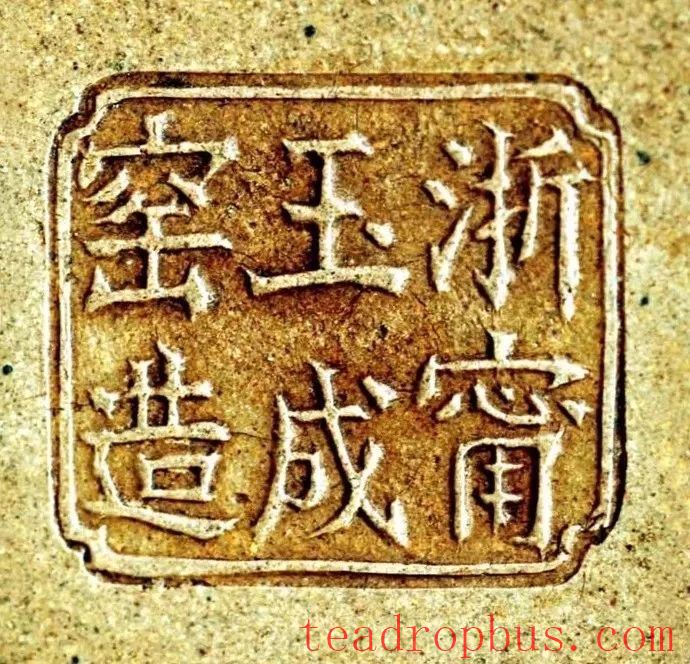
▲ Yucheng Kiln Seal
Huang Yulin
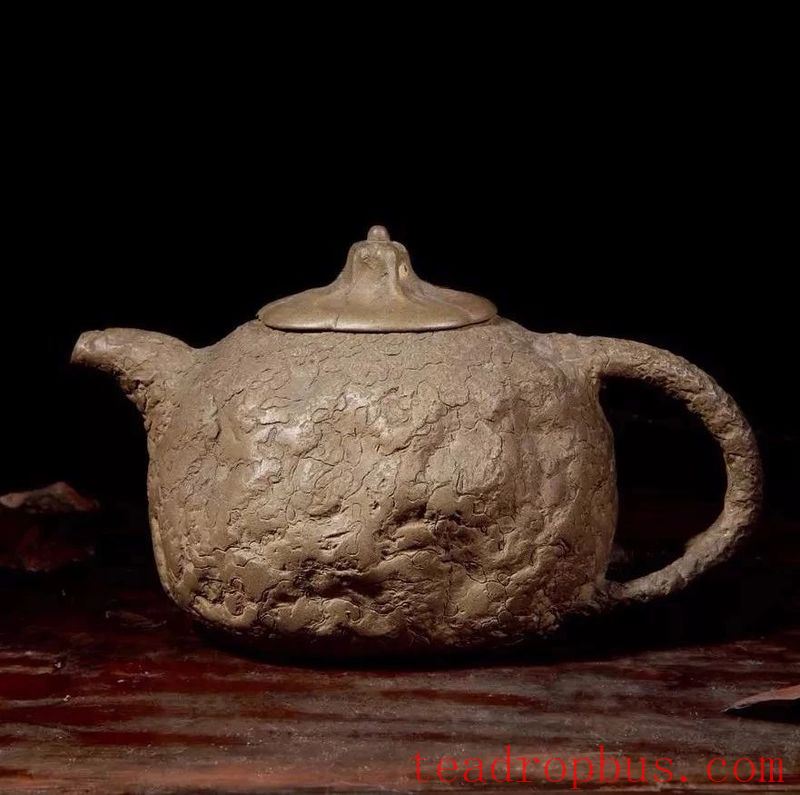
▲ Huang Yulin's Gong Chun Teapot
Huang Yulin was a great master of purple clay in the late Qing dynasty. His imitation of the Gong Chun teapot was incredibly delicate, and he created the Yu Hu Long teapot design, which has been passed down and remains a favorite among many enthusiasts today.
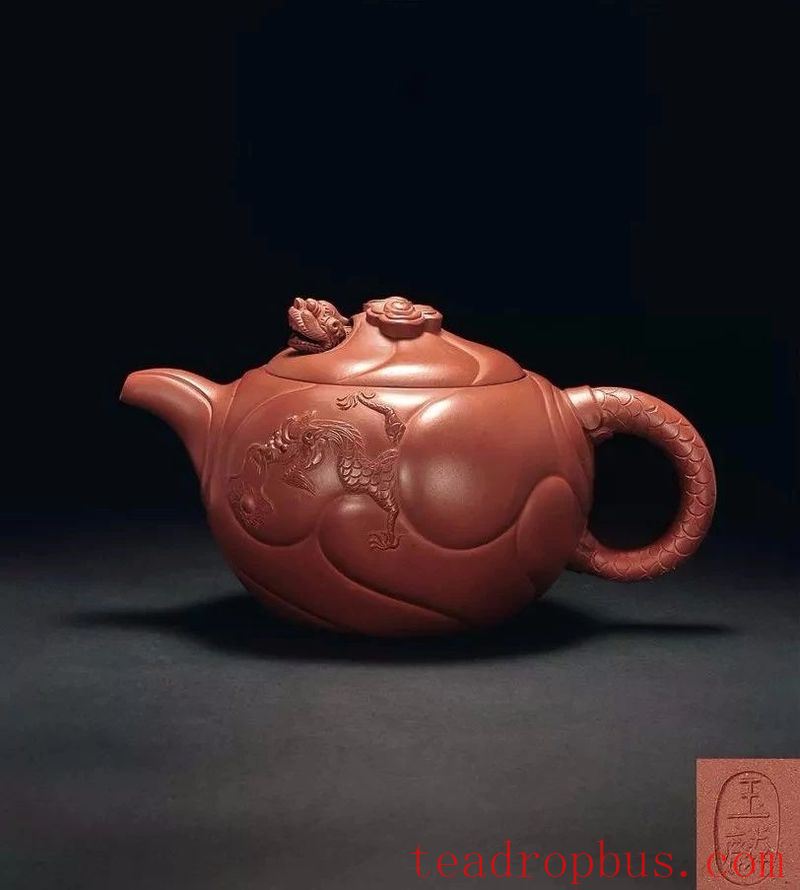
▲ Huang Yulin's Yu Hu Long Teapot
Yu Guoliang
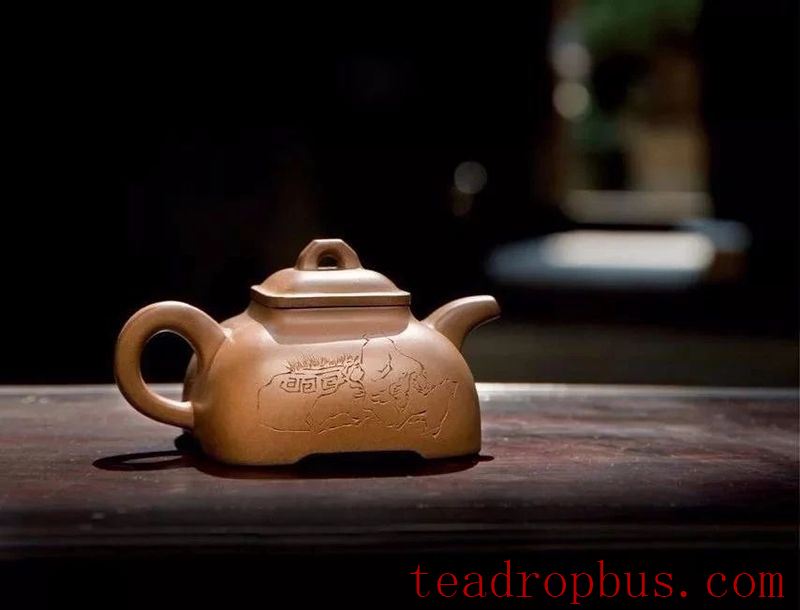
▲ Yu Guoliang's Huleng Teapot
Yu Guoliang was a skilled potter in the late Qing dynasty. He was hired by the famous collector Wu Dacheng from Suzhou to make teapots. The Chuanlu Teapot he crafted is considered the best, and it won a gold medal at an international exposition.
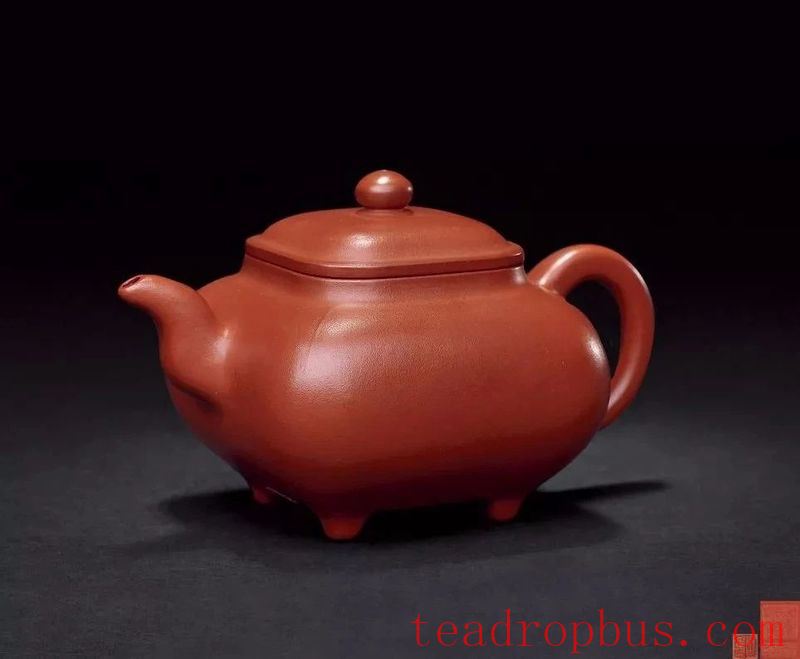
▲ Yu Guoliang's Chuanlu Teapot
Cheng Shouzhen
